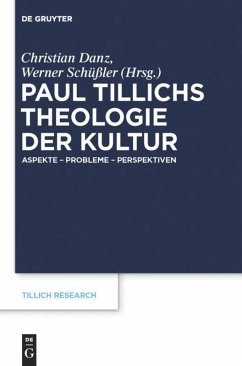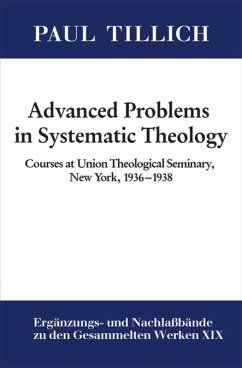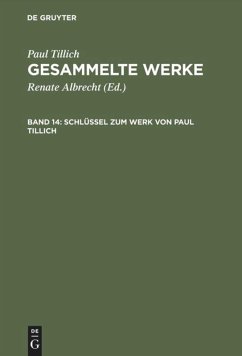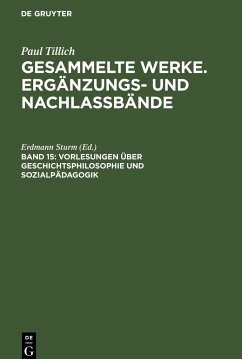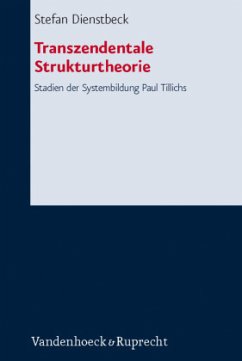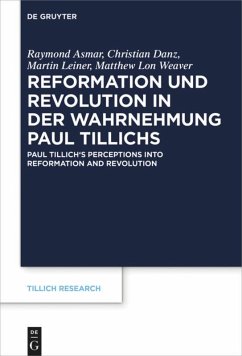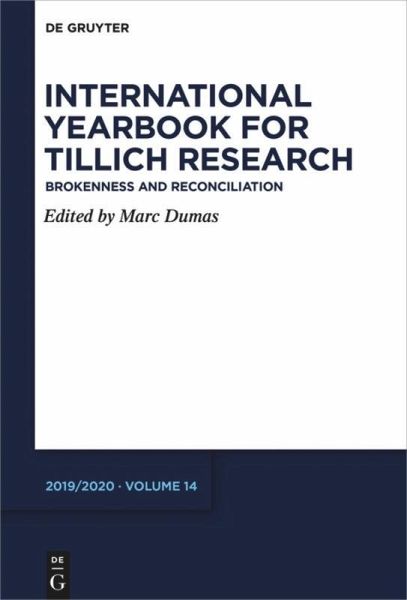
Brokenness and Reconciliation
Yearbook 2019/2020
Herausgegeben: Danz, Christian; Dumas, Marc; Schüßler, Werner; Wagoner, Bryan
Versandkostenfrei!
Versandfertig in 6-10 Tagen
68,99 €
inkl. MwSt.

PAYBACK Punkte
34 °P sammeln!
Too often we see reality in black and white, overlooking nuances that require the discernment of tensions between the brokenness of our world and our desires for reconciliation. Yet the gap between wounding words and actions and the hope for acts of reconciliation can lead to even more violence and despair. The authors of this volume explore these tensions and the valences of 'brokenness' and 'reconciliation' in Paul Tillich's thought. Together, they contribute to a richer understanding of the thought of the German American theologian and philosopher, his commitments, and the constructive inte...
Too often we see reality in black and white, overlooking nuances that require the discernment of tensions between the brokenness of our world and our desires for reconciliation. Yet the gap between wounding words and actions and the hope for acts of reconciliation can lead to even more violence and despair. The authors of this volume explore these tensions and the valences of 'brokenness' and 'reconciliation' in Paul Tillich's thought. Together, they contribute to a richer understanding of the thought of the German American theologian and philosopher, his commitments, and the constructive interpretations his work can induce for us today. Think of the ruptures and efforts of dialogue among divided Christian churches, or the commitment of the social worker; reflect on how love as agape, or the courage to be, can be at the heart of this constructive work; or consider the reconciliation processes of peoples torn apart by violence, to mention a few contributions from this volume. Collectively, these contributions raise the hope of a Tillichian creative justice, a hope that can stimulate a broad audience to go beyond the superficiality and instantaneity of social media to something deeper, more enduring, and transformative.




